If you love to cook chicken, seafood, and fish, then you very well remember lemongrass. It is an herb that is used to eliminate the fishy smell of fish and seafood, or the distinct smell of chicken. Scientifically known as Cymbopogon citratus, lemongrass is an herb that can also be used in repelling biting insects such as mosquitoes. Lemongrass oil is extracted from the lemongrass plant. In this form, it is easier for you to use it as a repellent.
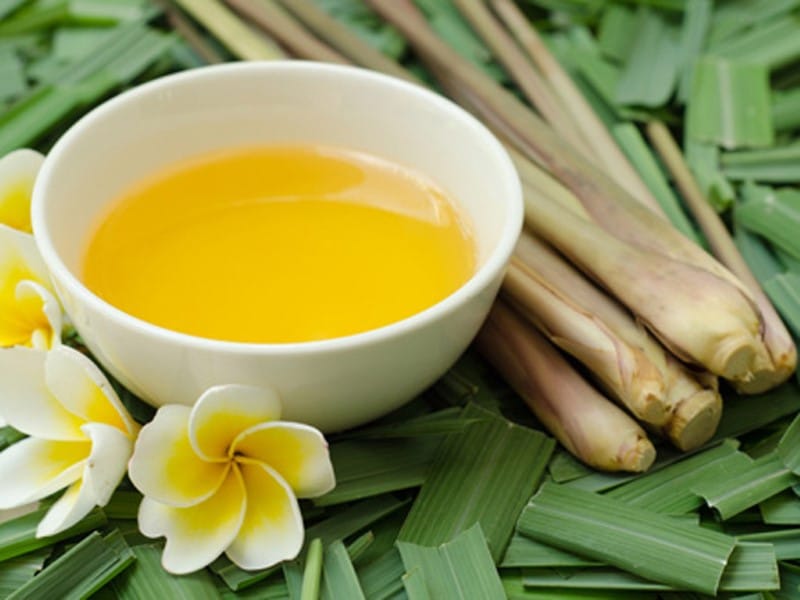
Basics of Lemongrass Oil
The herb called lemongrass is often added to beverages and dishes. It is a tall plant that belongs to the Poaceae family of grass. It is perennial and it thrives in subtropical and tropical regions such as Indonesia, India, Malaysia, Cambodia, Sri Lanka, Guatemala, and China. It has sharp-edges and bright green leaves, which are very like common grass. Lemongrass is a popular herb in Asian cuisine. It is often added to soups and various curries. It is also a common complement for seafood, beef, fish, and poultry. You can also make lemongrass tea from fresh lemongrass leaves.
Lemongrass oil, on the other hand, is an herbal oil that has many benefits to one’s health. It is extracted from the leaves of the lemongrass plant. Its consistency is thin. It has a bright or pale yellow color. Lemongrass oil has a strong, earthy, strong, fresh, and lemony smell, which repels biting insects as well.
The Known Uses of Lemongrass Oil
The following are the uses of lemongrass oil:
- It is a common ingredient in cosmetic and skin care products (lotions, soaps, tonics, deodorants, and shampoos.
- It deodorizes and freshens the air, especially when you combine it with other known essential oils such as bergamot and geranium. You can just put it in a vaporizer, oil burner, or diffuser. You can also use it with deodorizers and air fresheners.
- It is an important aromatherapeutic oil. Its aroma calms and cleans. It also relieves insomnia, stress, anxiety and irritability. Lemongrass also prevents drowsiness.
- It helps relieve muscle pain, period cramps, rheumatism, toothaches, headaches, migraines, and stomachaches. It also helps relax and tone your muscles.
- It is also an effective insect repellent. It can repel various insects such as ants and mosquitoes. Lemongrass is a natural repellent because it has high geraniol and citral content. You can rub its diluted form on your skin. Spray its more concentrated form around your home.
- It can be used in a foot bath. Just add a couple of drops into a basin of warm water. Soak your feet in it for about ten minutes. Add two tablespoons of Epsom salts if your feet are aching.
- You can make a massage oil out of it. Mix it well with jojoba oil or sweet almond oil.
- You can improve your bathwater with it by mixing it with your bath water or bath products.
- It can kill your pet’s parasites such as lice and fleas. Spray the diluted oil over your pet’s coat. Soak your pet’s collar in it or add it to the final rinsing water. Also, spray lemongrass oil on your pet’s bedding.
What is Lemongrass Oil’s Composition?
Here are the compounds found in lemongrass oil:
- Farnesol
- Geranyl acetate
- Neral
- Myrcene
- Citronellal
- Terpineol
- Dipentene
- Methyl heptenone
- Citral
- Nerol
*** These have counter irritant, antiseptic, antifungal, and insecticidal properties.
***Take note that citral has antimicrobial effects (suppresses the growth of fungi and bacteria)
***The quality of lemongrass oil is determined by the content of citral in it.
***Limonene in lemongrass oil kills bacteria and reduces inflammation.
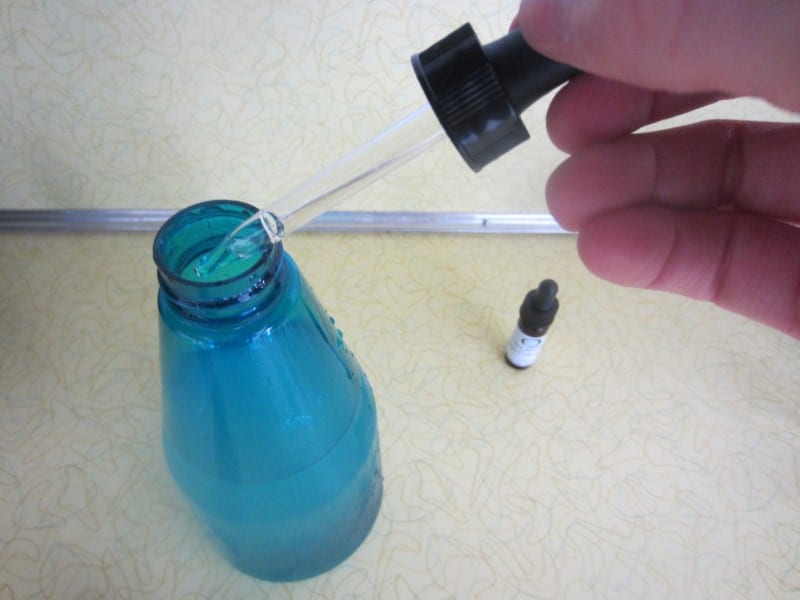
What Good Does Lemongrass Oil Bring?
Lemongrass is a healthy and versatile essential oil. It has antipyretic, antidepressant, fungicidal, analgesic, carminative, antimicrobial, astringent, antiseptic, and bactericidal properties. Below are some of the benefits brought about by lemongrass:
- It is a known analgesic that reduces inflammation and pain, which can lead into several chronic diseases.
- It helps treat scalp conditions such as oily hair and hair loss. It helps strengthen hair follicles. Just apply a diluted lemongrass solution on your scalp and rinse it out.
- It can help bring down high fever.
- It can kill external and internal fungal and bacterial infections (athlete’s foot, ringworm, MRSA).
- Its diluted form can help in boosting your digestion and nutrient assimilation. It can also prevent excessive gas formation and increase urination, which helps remove toxins from your body.
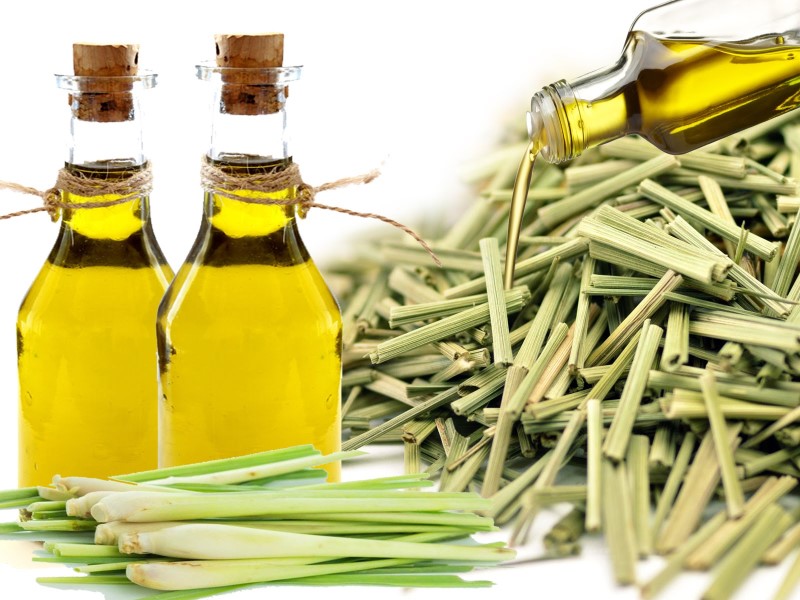
The following are more detailed explanations of lemongrass oil health benefits:
- As an analgesic. If a substance reduces inflammation and pain, then it is an analgesic. Lemongrass oil relieves joint and muscle pain, headache, and toothaches from viral infections such as poxes, fever, cough, and cold. It also helps in curing generalized pain from athletics and strenuous physical activities.
- As an antimicrobial compound. Lemongrass has antimicrobial properties, which inhibits bacterial and fungal growth in and on your body. It inhibits bacterial infections in the urinary tract, colon, respiratory system, and any kind of wound. It takes care of any infection in any organ system. It also helps cure body odor, skin diseases, typhoid, malaria, and even food poisoning.
- As an antidepressant. Lemongrass oil also helps in elevating mental strength, self-esteem, confidence, and hope. It alleviates depression, brought about by various failures in various aspects of life such as family, career, and personal life. It also relieves loneliness, insecurity, stagnation, and anxiety. You can administer lemongrass oil on people who are undergoing rehabilitation for their depression and acute shock. Just relax and take it in the form of tea.
- As an antiseptic. This essential oil can be applied on internal and external wounds. It is also a potent ingredient in antiseptic creams and lotions. Because of its antiseptic properties, the wounds and cuts, from which you suffer, do not become septic.
- As an anti-pyretic. Lemongrass also brings down elevated temperatures, even when it reaches detrimental levels. This is why lemongrass is widely used for this purpose. You can give someone lemongrass tea to lower that person’s fever.
- As an astringent. An astringent’s purpose is to help stop blood flow by contracting blood vessels. If you are bleeding much too quickly, you must use an astringent to accelerate your clotting to stop the flow of blood and save your life. Lemongrass, as an astringent, can also contract blood vessels, skin, muscles, hair follicles, and gums. This prevents teeth from falling out and hair loss. It also helps reduce the flow of blood through your blood vessels. Lemongrass can save your life.
- Deodorant. Synthetic deodorants are expensive. They also have short lived effects and a negative impact on our environment. They may even trigger allergies. Lemongrass oil is far better than these synthetic deodorants because it only brings about good things without the side effects. It is all natural, so you don’t have to worry about any damage to the environment or to your body.
- As a carminative. Excess gas in the intestine leads to flatulence. Lemongrass oil can help with this. It ids in removing gas from your intestine and prevents it from forming. It also relaxes the abdominal muscles to provide a safe passage for the excess gas.
- Other uses of lemongrass:
- Diuretic
- Fungicidal
- Febrifuge
- Insecticidal
- Sedative
- Nervine
- Galactagogue
- Tonic
- Antioxidant
- Sedative
- Anticarcinogenic
- Pain relief (topical)
- Facial sauna treatment
- Mood enhancer
- Insomnia aide
- Shock treatment
- Wound treatment
- Heartburn cure
- Indigestion cure
- Biting insect repellent
- Acne treatment
- Cholesterol aide
- High blood pressure treatment
- Athlete’s foot aide
- Fatigue relief
- Detoxifier
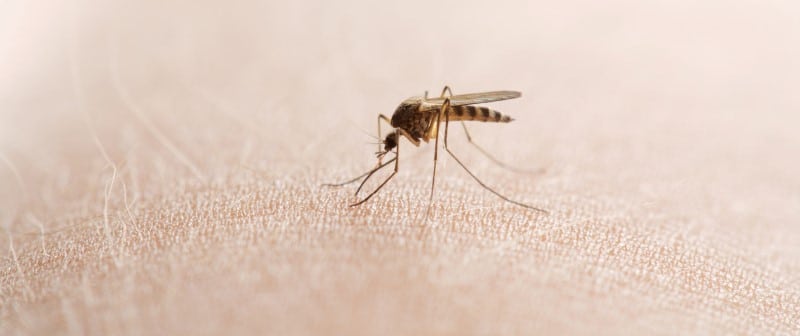
Lemongrass Oil as a Natural Mosquito Repellent
Lemongrass oil is effective as an organic repellent. Lemongrass is related to the citronella plant. Below are some of the ways you can use lemongrass oil as a mosquito repellent:
- Buy pure lemongrass oil. It is pure, safe, and natural. You can use it in diluted form by adding distilled water or rubbing alcohol to it. Then, pour your solution into a spray bottle, so that you can use it easily. Take note that concentrated lemongrass oil can cause skin irritation, so you need to dilute it first. Test it on a small patch of your skin before you apply it to the rest of your body.
- Burn lemongrass lamps and candles. Do this if you have a big outdoor space you want to protect from mosquitoes. Lemongrass products such as large torches, lanterns, and tea lights can add more relaxation to your yard. Forming a perimeter around your barbecue or picnic area with torches, lamps, and candles, protects a significant amount of yard space from mosquito activity.
- Combine lemongrass oil with other natural oils to produce a more potent mosquito repellent. You can mix lemongrass oil with lemon eucalyptus oil for mosquito protection of about five to six hours per application. You can also mix lemongrass oil with rosemary oil for a more fragrant formula. This can ward off a greater number of insect species.
- Just add drops o lemongrass oil to your cosmetic products. If you add some of this aromatic oil into your cosmetic products (shampoos, lotions, liquid hand soap, and sunscreens), the mosquitoes will move away from you.
- Add lemongrass to your garden. If you do this, you start to have your own personal supply of lemongrass oil. All you need to do is grind up the leaves, rubbing the leaf and stalk juices on your skin, or by chopping the stalks and leaves.
*** Some DEET-based repellents in the market has lemongrass oil as one of its active ingredients.
Making Your Own Lemongrass Oil
The moment you are bitten by an insect like a tick or a mosquito, irritation starts to set in. This is usually accompanied by pain and swelling. If you don’t have any ointment to repel such bites, take a lemongrass stalk from your fridge or garden and turn it into a repellent. The organic oils inside the lemongrass repel biting insects. They also give your skin a vibrant, fresh scent. Synthetic repellents cost money and are usually detrimental to your health. Here are essential steps in making your very own lemongrass oil:
- Get a lemongrass stalk and peel its outer leaves. Peel away the fibrous layer by pulling it toward the white end.
- Hold the peeled stalk with two hands, horizontally. Partition the stalk into two-inch segments, just by bending it.
- Roll each of the segments between your hands until they become mushy and pulpy.
- Twist each segment and squeeze the oil onto your skin.
- Apply the extracted lemongrass oil on your skin every 4-5 hours, to protect yourself from biting insects such as mosquitoes and ticks.
How Lemongrass Oil Works
As you know, lemongrass oil is considered a tonic, which can help your body function better. This essential oil enables the nutrients to be readily absorbed into your body, making your immune system robust.
You can apply it topically, you can diffuse it using a vaporizer, you can ingest it, and you can inhale it. Ensure its efficiency by using it based on the condition that you want to treat or improve. Diffuse lemongrass oil if you want to relieve anxiety and stress. Dilute it first and then use it to massage painful areas or infected areas of your body. If you intend to take lemongrass oil orally, you should see your healthcare provider first.
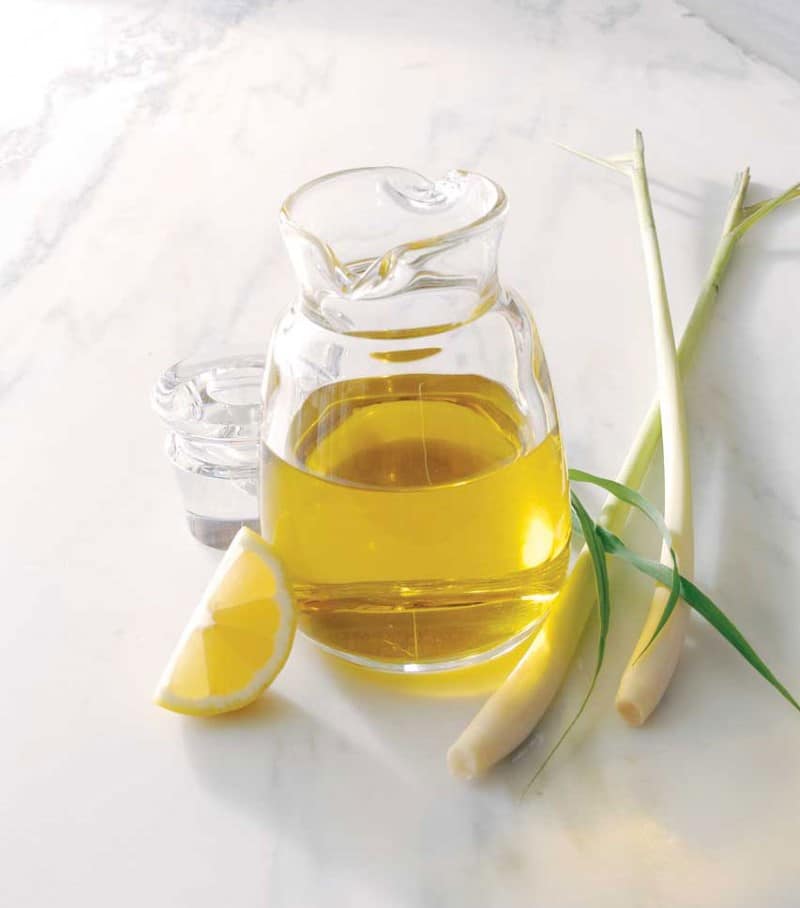
If you decide to use lemongrass oil to repel biting insects, you should practice care. In its undiluted form, lemongrass oil can injure or burn your skin because of the high levels of citral in it. You should mix lemongrass oil with carrier oils such as coconut oil or olive oil. To be sure that you will not experience any irritation from lemongrass oil, perform a patch test. This will indicate any adverse reactions, which you may have when you come in contact with lemongrass oil.
Lemongrass Oil Side Effects
Some side effects (topical) acquired by those who are sensitive to lemongrass oil are burning sensations, skin irritation, rashes, and discomfort. Using lemongrass oil also lowers blood glucose. So, if you are taking anti-hypertensive drugs or oral diabetes medication, you should not take lemongrass oil. This essential oil is not recommended for nursing mothers, pregnant woe, and children. It is best to consult your doctor first before you use or consume lemongrass oil. Take into consideration ay diagnosed health condition such as kidney or liver disease.